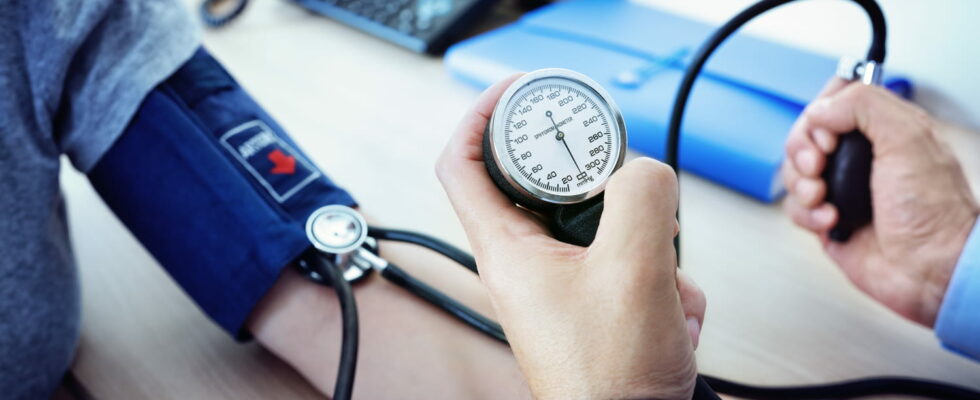It could thus increase the risk of cardiovascular accidents.
Visual blur, ringing in the ears or even headaches, high blood pressure is a pathology that affects almost 30% of the French population. It is also the most common chronic disease. It results in an increase in blood pressure in the arteries and constitutes a very significant cardiovascular threat with an increased risk of myocardial infarction, stroke and kidney failure. It seems that a very common and hitherto unknown symptom also contributes to the dysregulation of blood pressure. This is the conclusion of a study carried out by researchers at the University of Southampton in England.
The scientists compared the heart rates, blood pressure and baroreflex sensitivity of 2 types of patients: 23 patients admitted to ENT surgery (ear, nose, throat) presenting symptoms in the throat (feeling of a lump in the throat , cough, difficulty swallowing, etc.) and 30 patients admitted to gastroenterology presenting digestive symptoms. The baroreflex is a reflex of the autonomic nervous system, it is essential because it adjusts the heart rate and the tension of blood vessels to maintain stable blood pressure, especially when changing position (going from sitting to standing, for example) .
According to the results published in the journal “Jama Otolaryngology”people with throat problems had higher resting heart rates and lower blood pressure. Their baroreflex, responsible for controlling blood pressure, worked less well. “We found that in patients with a throat abnormality, the heart, particularly the baroreflex, is less well controlled”explains Professor Reza Nourei, professor of laryngology and lead author of the study.
This means that patients with throat problems were less able to regulate their blood pressure. For what ? According to researchers, the nerve that controls the autonomic nervous system, called the “vagus nerve”, gives priority to protecting the airways, to the detriment of regulating blood pressure, which it considers less urgent. “To compensate for a throat abnormality, the autonomic control system must expend a significant amount of energy to keep the airway safe”specifies the specialist.
Throat problems could, in the long term, increase the risk of heart attack or stroke. “This likely impacts long-term survival because patients with reduced baroreflex function are more likely to die from a heart attack or stroke in years to come.”the scientist is alarmed. Researchers now hope that this discovery will allow better anticipation of these accidents. “If there is a risk that throat problems could affect functions like the baroreflex or have a wider impact on general well-being, they need to be given greater consideration.”
